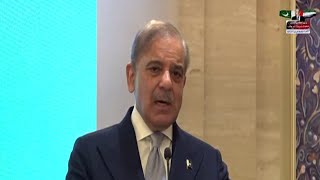The Sindh government on Friday pledged to support all initiatives of the WWF-Pakistan to conserve nature and wetlands and help sustainable development. "Sindh is home to rich natural resources and is bestowed with a wide range of wetlands including ten Ramsar sites. These significant wildlife and water bodies need to be managed sustainably through collaborative efforts and livelihood support," Chief Secretary, Sindh government, Syed Mumtaz Ali Shah said during a meeting with the WWF-Pakistan officials at its office.
The purpose of the meeting was to further strengthen collaboration between WWF-Pakistan and the government of Sindh for nature conservation and sustainable development in the province.
The Chief Secretary appreciated the efforts of WWF-Pakistan in conservation of biodiversity, supporting the livelihood of fisher communities and promotion of renewable energy in rural areas of the province. He lauded the breakthrough revival of Indigo after more than 30 years, which can be a major source of livelihood for underprivileged communities. He assured that the Government of Sindh will extend all support for intellectual property rights for the traditional indigo dye making process: SINDIGO to farmers of Sindh.
He said that Karoonjhar Hills would be declared wildlife sanctuary for conservation of biodiversity, in general and vultures, in particular. He requested WWF-Pakistan to assess the current state of Ramsar sites in Sindh and develop management plans for their conservation and restoration in collaboration with the Sindh Wildlife Department.
The Chief Secretary said that the Government of Sindh will work with relevant organisations for the sustainable development of the province. He further said that concerned departments should renew MoUs with WWF-Pakistan and asked to ensure their proper implementation. He appreciated the role of the Indus Ecoregion Steering Committee (IESC) to ensure implementation of conservation. He also asked to review 50 year Indus ecoregion Vision 2006-2055 and align it with the Government of Sindh's priorities.
Hammad Naqi Khan, Director General, WWF-Pakistan, apprised the participants of the meeting about various WWF-Pakistan initiatives including the Indus Ecoregion Community Livelihood Project (IECLP), which aims to improve livelihood and builds capacity of local fishers and farmers at four priority wetlands sites namely Keenjhar, Manchar, Chotiari Reservoir and Nara Canal.
While, sharing the details of the WWF-Pakistan's Marine Programme, Khan informed that as a result of awareness spreading and training of local fishers, mortality of dolphins has decreased from 12,000 to only 13 since 2012. He further informed that anew project on mangrove conservation has been initiated through which mangroves will be planted on 3000 hectares and 11000 hectares of existing mangroves will be protected in the Indus delta.
The meeting was attended by Dr Shereen Mustafa Narejo, Secretary Planning and Development Department, Dr Abdul Rahim Soomro, Secretary Forests and Wildlife Department, Saeed Mangnejo Secretary Environment and Climate Change, Dr Babar Khan, Regional Head Sindh and Balochistan, WWF-Pakistan, Nasir Ali Panhwar, environmentalist, Muhammad Moazzam Khan, Technical Adviser WWF-Pakistan, Dr Allah Dad Talpur, DG Fisheries Sindh and Waqar Phulphoto Director Sindh Environment Protection Agency.
BR100
7,841
Increased By
30.9 (0.4%)
BR30
25,465
Increased By
315.4 (1.25%)
KSE100
75,114
Increased By
157.8 (0.21%)
KSE30
24,114
Increased By
30.8 (0.13%)






















Comments
Comments are closed.